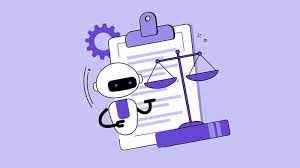Home ➤ Blog ➤ Generative AI ➤ Ethics of AI in the Criminal justice System

Ethics of AI in the Criminal justice System
Alec Foster • 2023-01-05
Generative AI, AI Models
The integration of artificial intelligence (AI) in the criminal justice system has the potential to revolutionize the way cases are tried and sentences are determined, yet it is imperative to consider the ethical implications of such technology. It could perpetuate and amplify biases present in the system, leading to the perpetuation of systemic discrimination and injustice.
One concern is the potential for AI to reinforce racial and ethnic biases. For example, if a machine learning algorithm is trained on biased data, it may make decisions that disproportionately affect certain groups in a negative way, perpetuating systemic racism and discrimination within the criminal justice system. A prime example of this is the New York Police Department's "stop and frisk" program, which was found to disproportionately target communities of color, leading to widespread criticism and a lawsuit that declared the program unconstitutional.
Another ethical concern is the lack of transparency in the decision-making process of AI. It can be difficult for individuals to challenge or appeal a decision made by a machine, as the inner workings of the algorithm are often not fully understood. This lack of accountability can undermine the fairness and due process of the criminal justice system. Furthermore, the use of AI in the criminal justice system could lead to the privatization of decision-making, as algorithms may be owned and controlled by private companies, creating conflicts of interest and further eroding transparency and accountability.
It is crucial that those implementing AI in the criminal justice system consider these ethical issues and take steps to mitigate their impact. This could include regularly reviewing and auditing the data used to train algorithms to ensure it is not biased, increasing transparency in the decision-making process, and promoting public oversight of the use of AI. In this way, we can work to ensure that AI is used in a way that is fair, transparent, and accountable, and does not perpetuate or amplify existing biases in the system.


